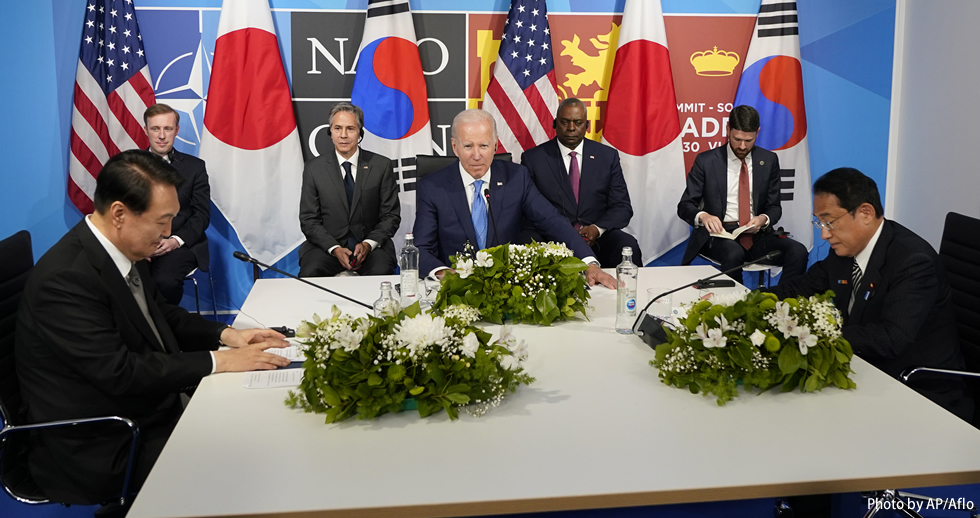In Northeast Asia, where the Cold War structure has remained intact, North Korea has further heightened its threat to the region and the international community by launching numerous missiles including ICBMs. Amid this tension, the conservative administration came to power in South Korea after five years, and has drastically changed its predecessor's policies toward North Korea and Japan as well as in the security area. China continued to increase its military power and expand its political and economic influence, especially in the Indo-Pacific region, while struggling with its approaches towards COVID-19 at home and its economic slowdown. The US has continued to focus on the Indo-Pacific region even after Russia's invasion of Ukraine and views China as its most important strategic competitor, while trying to manage its relationship with China. However, the US-China relationship, which continues to be competitive and confrontational on all political, economic, and military aspects, has increased its level of tension in 2022, especially over Taiwan, and there is no prospect for a fundamental easing of tensions.
The US has worked to strengthen its relations with ASEAN countries in competition with China, and China's assertive outreach to Pacific island nations has brought attention to the strategic importance of the region. In the area of economic security, the US accelerated moves to promote "friend-shoring" in cooperation with allies and partners to reinforce supply chains and secure stable supplies of critical goods, while other countries, including Japan, took concrete steps to formulate new institutions and support measures.
| 【Part 1】 US-China Competition and the Indo-Pacific region | |
| (1)Politics and Security 09:00-10:30(JST) Tuesday, Feb. 21 (online) (2)Economy 10:45-12:15(JST) Tuesday, Feb. 21 (online) Special Session: Maritime Security around Japan 12:30-13:30(JST) Tuesday, Feb. 21 (online) |
|



